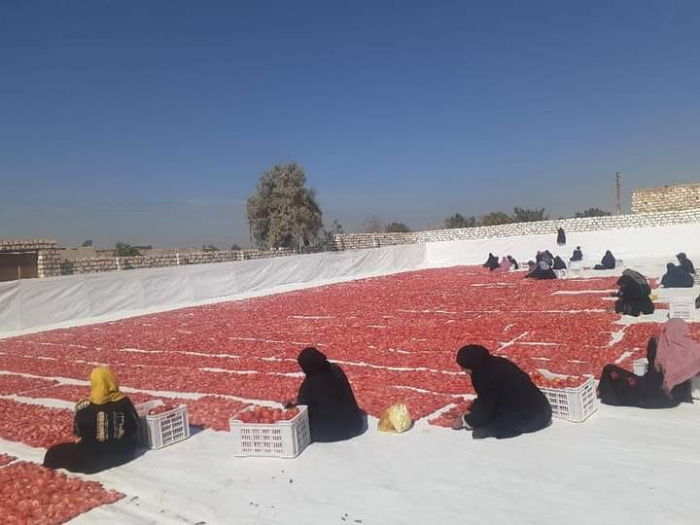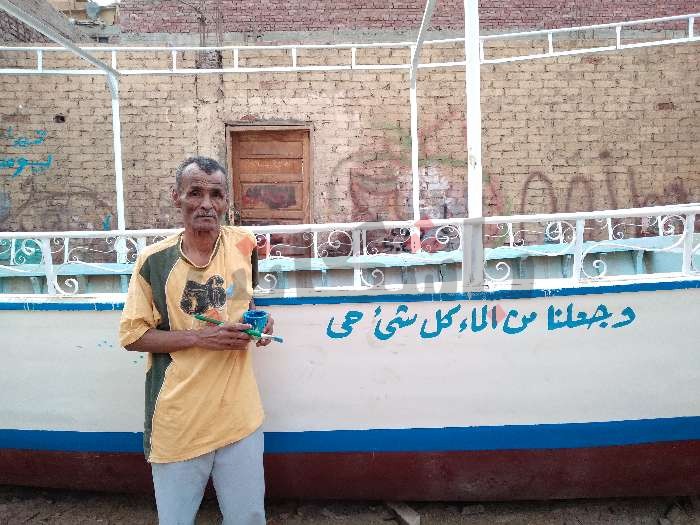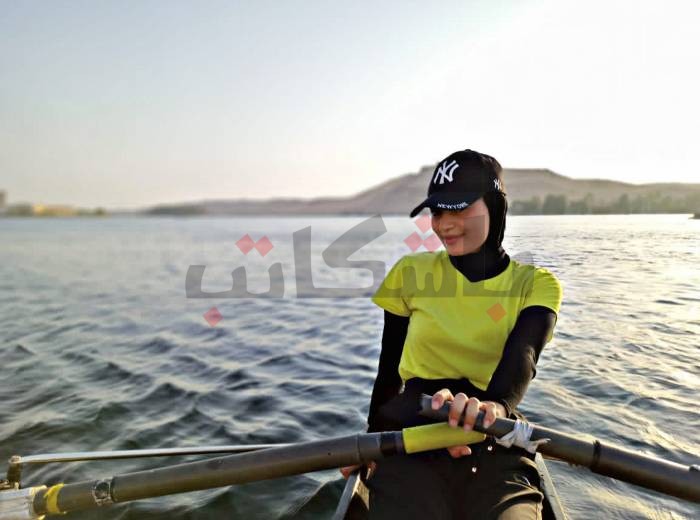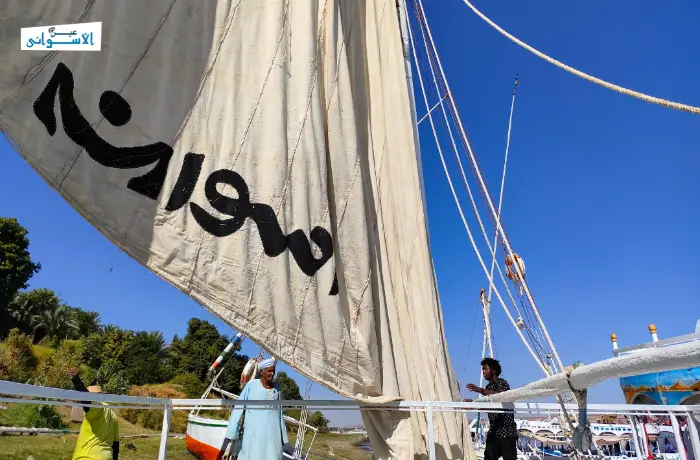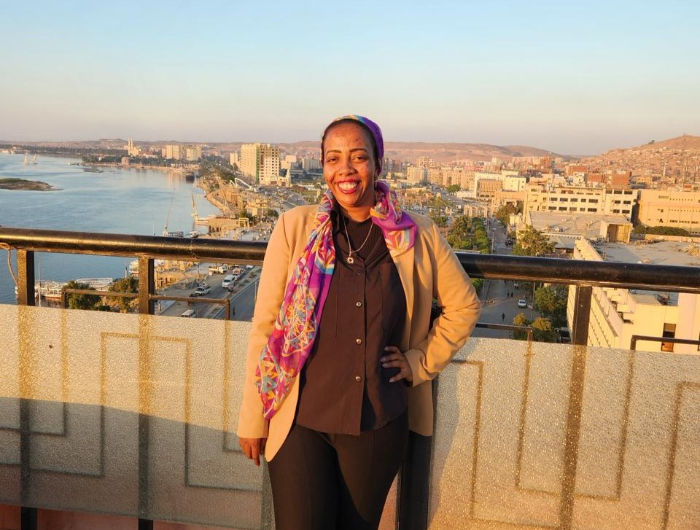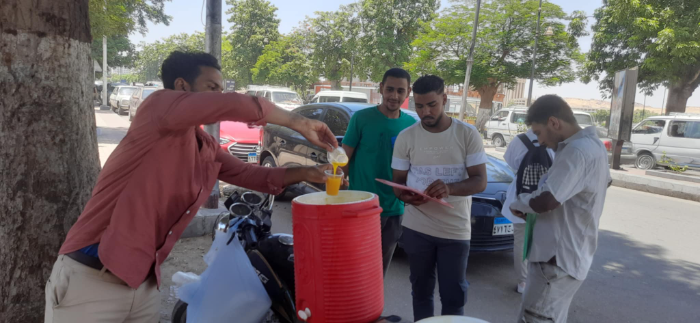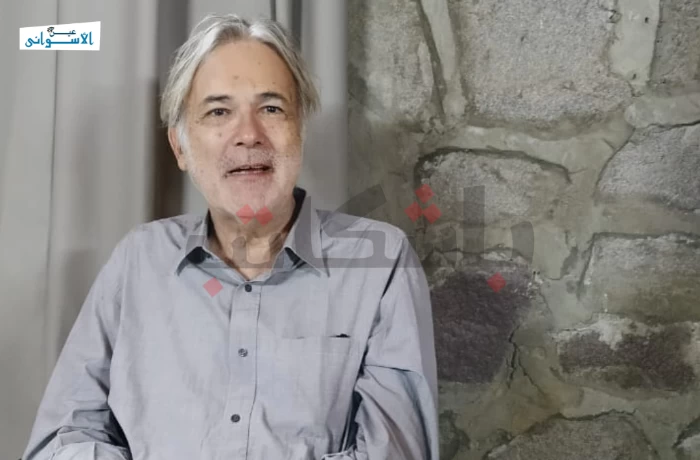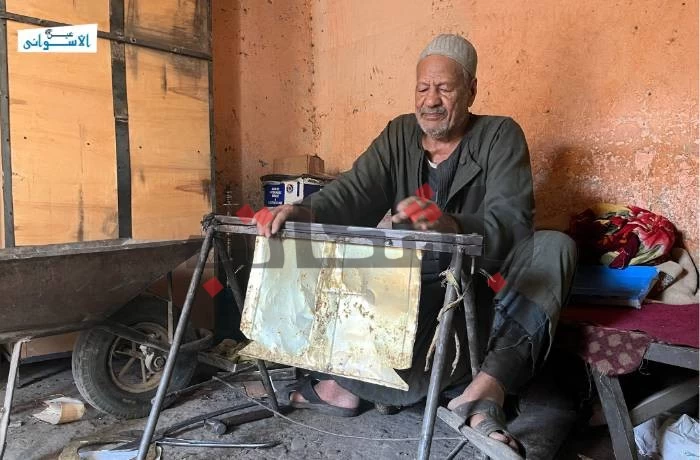Each winter tourist season, visitors to the tourism market are drawn to the herbal shops, drawn by the fragrance of medicinal and aromatic plants. Aswan Governorate is renowned for its prowess in this agricultural sector, boasting extensive areas dedicated to it. For instance, hibiscus spans 9,201 acres in the governorate, while mint covers 652 acres, as reported by the semi-annual Journal of African Research and Studies and Nile Basin Countries.
This success encouraged Intessar Abdulbari, one of the founders of the Community Development Association in Al-Gendia, Kom Ombo Centre, to launch the “Al-Amal” (Hope) project for drying medicinal and aromatic plants. This project focuses not only on using the governorate’s agricultural wealth of these crops, but also economically empowering the village’s women.
In the following, Abdulbari talks about the beginnings of her project, how she developed it, and her goals.

In the beginning, what inspired you to consider the project?
As a resident of Selwa village and an employee at the development association, I observe that the village is lacking in facilities and industrial activities that could attract skilled leaders, particularly women seeking employment. Therefore, I devised a way to create job opportunities for women within the village, so they wouldn’t need to leave.
The project’s success in Luxor and Esna was largely due to the area’s notable agricultural activities and the abundance of daily labourers. Consequently, I chose to commence in Al-Hagnadia village.
What was the initial capital for the project, and who assisted you in setting it up?
I decided to reach out to “Om Habiba” civic foundation in Aswan, which offers financial backing for emerging projects. The foundation provided the project with 300,000 EGP and supplied us with raw materials to get the project up and running. They also assisted women travelling to Luxor to receive training in crop drying techniques.
How many labourers are in the project?
Since the project’s launch in January 2022, we have engaged 150 women. We focus on supporting widows, divorced women, and breadwinners in need of employment. Our initiative extends beyond Al-Hagnadia village, encompassing women from Lower Selwa, Al-Shatb, Al-Masaeed, Upper Selwa, Abu Eid, and Al-Tawab in Edfu. Each woman earns an income of approximately 3,000 pounds per month through the project.
Which agricultural crops does the project focus on? What are their characteristics, and how much is produced?
In its first year, the project began by drying tomatoes. As there was no land available for growing tomatoes in Aswan, we sourced them from farmers in Esna, Luxor, ensuring they met specific criteria, such as low water content and firm flesh. Given that tomatoes are a seasonal crop and not available year-round, we expanded to drying other crops to maintain the project’s continuity, including hibiscus, mint, and molokhia. We arranged with farmers to cultivate crops with particular specifications from the outset to ensure they were suitable for drying. We successfully dried a tonne of hibiscus, five tonnes of tomatoes, and one and a half tonnes of mint.

Where does the Al-Amal project display its products?
We deal with companies from Cairo and Alexandria, which handles exporting abroad. Last year, we exported tomatoes to Brazil and Italy, and hibiscus to Canada. Moreover, we sold our products in our local outlets. The project had a strong impact on women’s economic empowerment. Some women were able to help their children with their education, some established their own projects, and one woman was able to build her own home.
What obstacles does the project encounter in its efforts to expand and boost production?
We sell our products in Egyptian pounds to companies that export them in foreign currencies. If we could export our products directly without an intermediary, we would achieve higher revenues. Although some companies have offered to deal with us directly, we were unable to do so.
Additionally, we lack refrigeration facilities, which limits us to producing a maximum of one tonne and 200 kilograms locally. We cannot produce more to prevent our products from spoiling. A company once requested 25 tonnes of dried tomatoes, but we had to decline due to the absence of refrigeration. Furthermore, the lack of electricity exacerbates the situation.
What are the current requirements for the project?
We need to acquire ownership of the land where the project is situated, which is currently provided by the governorate. As a public benefit organisation, the foundation cannot purchase the land. The municipality has granted us a temporary licence until the allocation and formalisation procedures are completed, which have been delayed due to bureaucratic processes.
